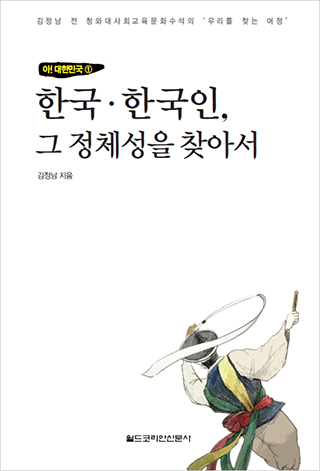By Jeongnam Kim
(Former Senior Presidential Secretary for Education·Culture·Society, World Korean News advisor)

"There is a Korean folksong. It is an old beautiful song, infusing from the warm heart of a suffering people. Just as the beauty that strikes the chord of our heart is all contained in sorrow, so is this song. There is an Arirang ridge in the suburbs of Seoul.… On the top of this ridge, a big pine tree was standing. A few tens of thousands of criminals died hung on some gnarled branches of this old pine tree. One of them sang a song he composed in a prison, slowling while walking uphill toward the Arirang Ridge. This heart-breaking song resonted in the halls of all prisons throughout the country. Presently nobody could stop the right of an individual from singing this song before his final moment. Thus this Arirang became the symbol of tragedy in this country."
This is an origin of Arirang, introduced in "The Arirang" by Neil Wales. But according to an established theory, the song was first started by a group of construction workers gathered from throughout the country working on the re-construction of Kyongbok Palace and it was spread throughout the country.
Anyway, apparently the song has contained a sad tune, and its text has some words associating such national tragedies as separation and lost. Thus it became a song confirming the 'sad identity' of our nation who lost their land.
However, since we have achieved our Liberation and Independence, and the industrialization and democratization, we have stood proudly as 'a Korean Nation in the World' there has been a change in our sense of looking at and listening to Arirang. No longer is the music a sad song. Arirang is transforming itself into a song confirming our national status flying high above the skies.
Its form is simple. Based on the refrain, 'Arirang, Arirang, Arario,' this music is a revolving song reciting a variety of texts. As evidenced in the text, "There are lots of stars in the blue skies, so many grieves are there in my heart." This is composed in a sort of antithesis. And therefore, we can compose so many different kinds of text depending on the individual who sings this song. It is estimated that there are some 6,000-odd texts in about 50 different styles of Arirang.
Arirang is light-hearted when sung rapidly, and sorrowful at a slow tempo, and it becomes solemn when sung with respect. I could even become a march song or a lullaby. It's not an accident that this song is adopted as a hymnal by the Northern Presbytery of the United States. It was known that China initiated the recording of Arirang as a song for its minority nation (or Chosun Nation in China) in the World Cultural Legacy, but this is our folksong irrespective of whoever says otherwise, replete with sorrows and chastity of the Korean people.
Look at me, look at me, look at me/ like you see a flower in bloom in the depth of winter. (Milyang Arirang)
Complaints of mother-in-law are like Mt. Sulbi/ My husband's complaints are as sweet as honey. (Yechon Arirang)
Now, this folksong, sung within the compound of our land, is reborn as an Arirang of the world being sung anywhere in the four corners of the globe where the Korean people reside. Arirang is a sound which demonstrate that you are a Korean and it provides a network connecting us each other.


